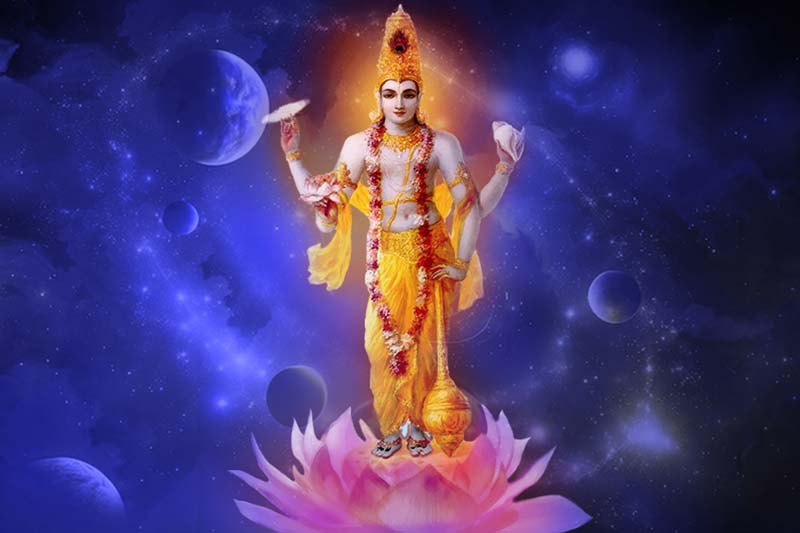
The Hindus follow various religious fasts, among which the Ekadashi fasts are very popularly followed. The term Ekadashi means the 11th day of the Hindu Lunar calendar. Every month as per the Hindu Lunar Calendar, the Ekadashi takes place twice. Once on the 11th day of the waxing Moon fortnight or Shukla Paksha and once on the 11th day of waning Moon fortnight or Krishna Paksha.
Ekadashi is a day when a fast is observed by the devotee, in honour of Lord Vishnu/Hari. Observing Ekadashi fast is extremely meritorious spiritually. Devotees who meticulously observe the Ekadashi fasts are blessed by Lord Vishnu, with the fulfilment of desires and are said to even help attain Moksha.
There are 24 Ekadashis in a year and Leap years have 26 Ekadashis. Both the Shukla Paksha Ekadashi and the Krishna Paksha Ekadashi have the same importance and power. The Ekadashis are the best fasts and are also considered holy even in Jainism.
About Saphalaa Ekadasi
The Saphala Ekadashi is the 11th day of the waning Moon/dark fortnight or Krishna Paksha which is in the Hindu month of Pausha (December-January). It is also referred to as Pausha-Krishna Ekadasi.
Saphala Ekadashi 2026 Dates, Parna Time, Tithi
Saphala Ekadashi on Monday, November 12, 2026
On 13 th Nov, Parana Time - 07:04 AM to 08:59 AM
On Parana Day Dwadashi End Moment - 09:25 PM
Ekadashi Tithi Begins - 08:20 PM on Nov 11, 2026
Ekadashi Tithi Ends - 08:37 PM on Nov 12, 2026
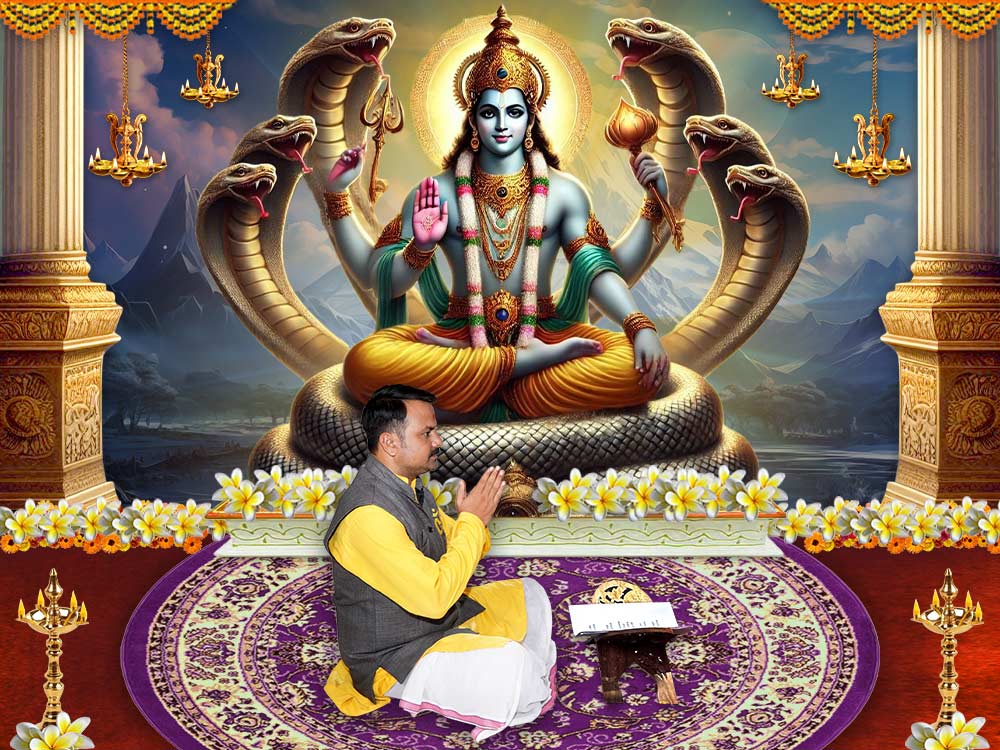
Those who observe the fast must break it after sunrise the next day of Ekadashi. It is to be noted that one should break the fast (Parana) within Dwadashi Tithi. Another important consideration is that one must not break the fast during Hari Vasara which is the fourth duration of Dwadashi. The best time to break the fast is pratah kala (morning).
Saphala Ekadashi Vrat Katha (Story)
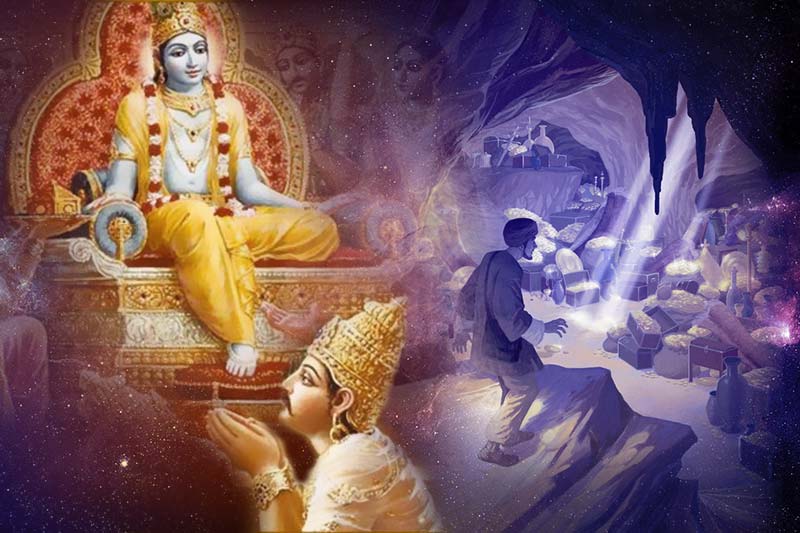
Lord Krishna tells Yudhishtira the story of what happened on the Ekadasi which gave it the name, Saphalaa Ekadasi. The story is about Lumpaka, the eldest of the four sons of the good-natured King Mahishmata of a city called Champavati. Lumpaka led a sinful life indulging in gambling, visiting the prostitutes and having illicit sexual relationships with married women. Because of Lumpaka's sinful activities the wealth of his father, King Mahishmata, was also suffering but Lumpaka was not bothered with anything. To top all this, Lumpaka became highly cynical about God or Lord Vishnu and the Devas (Demi-Gods), he criticized the Brahmins and the Vaishnavas of the city were victims of his blasphemy.
Understanding that things had gone out of hand and that Lumpaka was not ready to correct his behaviour and sinful activities, King Mahishmata took the tough decision of sending him to exile in the forest. Other family members and relatives did not dare to take Lumpaka's side as they were fearful of the King's reaction.
In exile in the forest, Lumpaka was angry at being disrespected by his father and the fact that none of his relatives or people spoke in his favour. His vengeful mind cooked a plan to go every night to the city and steal the wealth and valuables of the people in the city. He implemented his sinful plan and every day he used to hunt animals during the day and in the darkness of night went to rob the city. Though the citizens of Champaavati suspected Lumpaka for robbing, they could not express it to the King out of fear.
This routine continued. In the forest, Lumpaka, unknowingly, used to sit and rest under a Banyan tree which was worshipped as the demi-God of all the trees of the forest and most importantly this tree was Lord Vishnu's favourite.
In due course of time, the Ekadasi which is known as Saphalaa Ekadasi came. On Dasami evening i.e. the eve of Ekadasi, Lumpaka started feeling extremely cold due to lack of suitable blankets and bedding. He spent a sleepless night beneath the Banyan tree. The next morning, Lumpaka almost went into a state of comatose, his body shivering and teeth chattering, he lay there in a semi-conscious state and could not get up. By midday of Saphalaa Ekadasi, still in a state of stupor he tried to get up and walk but kept falling down with every step. Overwhelmed with hunger and thirst, he somehow dragged himself to go and look for some food in the forest. Since he was in no condition to hunt, he gathered the fruit of trees which had fallen on the ground.
After collecting the fruit, Lumpaka limped back to his place under the Banyan tree by which time the sun had set. He placed the fruit at the base of the Banyan tree next to him, in complete woe, he looked up to the sky asking Sri Hari (Lord Vishnu) to have mercy on him as he was not being able to understand what his fate was. Lumpaka requested Sri Hari to accept the fruit he had collected as an offering.
That night too Lumpaka suffered the cold and lay awake. However, Lord Sri Hari was pleased with the humble offering of fruit from Lumpaka. The other important thing which Lumpaka was unaware of was that he had observed fast on Ekadasi and stayed awake at night. Which qualified him for the merit of observing Ekadasi fast.
Came down and magically a majestic horse came walking to Lumpaka as if searching him out and stood near him. Lumpaka was surprised when a booming voice was heard from the skies. The voice urged him to get on the horse and go to his father because Lord Sri Hari was pleased with him for unknowingly observing a complete fast on Saphala Ekadasi for which he was being rewarded with the merits. The voice added that Lumpaka would gain back his kingdom without any further obstacles and reiterated the benefits of Saphalaa Ekadasi fast.
So, Lumpaka returned back to the city of Champavati and to his father. He had started looking at the healthy and handsome prince that he was once more, as a merit of fasting on Saphala Ekadashi. Lumpaka apologised to his father, King Mahishmata, who welcomed him back and gave him the responsibility which a prince is supposed to take.Lumpaka had become a person of pure consciousness and his head was bowed on the Lotus feet of Sri Hari (Lord Sri Krishna/ Vishnu) in complete devotion.
Later Lumpaka had a happy life with a good wife and son and successfully ran the kingdom. When he became old, he left the responsibilities of the kingdom to his son and leaving the material world retreated to the forest to stay dedicatedly in the devotion of Sri Hari and serve Him. When Lumpaka left his mortal body he was welcomed in the abode of Lord Vishnu/ Sri Hari and gained a place at His feet.
Thus, Lord Sri Krishna ended the narration of the Saphalaa Ekadasi story, explaining to Yudhishtira that even if someone observes the fast of Saphalaa Ekadasi unknowingly, he/she stands to gain the benefits thereby underlining the importance of Saphalaa Ekadasi. The Lord also praises Lumpaka's devotion, dedication and surrender to the Divine Lord Vishnu which blessed him with so many rewards during and after his life.
Rituals: What To Do On Saphalaa Ekadashi?
Some special and important rituals of Saphalaa Ekadasi, which are to be followed by devotees include the offering of fresh fruit to Lord Narayana, which depends on the season, the place where the devotee dwelled and other circumstances.
The offering of Pomegranate, Jambura fruit (Pomelo/Pumelo), Guava, Coconut, Betel leaves and nuts, varieties of nuts, Mangoes, cloves and other aromatic spices are mandatory on Saphala Ekadasi.
- Lighting a Ghee Lamp holds special importance on Saphala Ekadasi.
- Burning of Incense sticks during worship.
- Staying awake at night on Saphala Ekadashi is significant as Lord Krishna explained to Yudhishtira that staying awake through the night in alertness is equivalent to performing rigorous penance or austerity for five thousand years on earth.
- Meditating on Lord Narayan as the Supreme Personality of Godhead on this most auspicious of days is something the devotees should do.
The other rituals of Saphala Ekadasi are the same as other Ekadasis.
- One day before Saphalaa Ekadashi, which is the 10th day of the Krishna Paksha, the person should clean his/her teeth thoroughly in the afternoon and have supper at Sunset hour.
- On the morning of Ekadashi, the person should intend on keeping the fast meticulously. The person should have a bath in a river (which is said to be most purifying) or a lake and in both not being available, bathe with pond water.
-
While bathing the person should smear mud on his/her body with chanting a prayer to Mother Earth.
The prayer - O Asvakrante! O Rathakrante! O Vishnukrante! O Vasundhare! O Mrttike! (O Mother Earth! please remove all my sins accumulated from past lives so that I may enter the abode of the Lord Vishnu the Supreme Lord) - Worship Lord Govinda with complete dedication and Offer an excellent 'Bhog' (food to Divine) along with flowers and other things of the offering.
- Light a lamp at home in honour of the Lord
- Chant or sing praises of Lord Vishnu throughout the day and remain in a most blissful state during the fast.
- Stay awake through the night in full consciousness. If possible play musical instrument throughout the night to please the Lord.
- The next morning the person should give charity to Brahmanas and respectfully ask them for forgiveness for any offence.
- For people who keep a complete fast till the next day, one should say the prayer - 'O Pundarikaksha, O lotus-eyed Lord, now I will eat. Please shelter me'.
- After the prayer the devotee should offer flowers and water at the lotus feet of Lord Vishnu and request the Lord to eat by chanting the mantra of eight-syllable, thrice. To garner the full merits of the fast, the devotee should have water which has been offered to the Lord.
- Fire sacrifices can be performed if the devotee chooses to do so.
The day of Ekadashi till the next morning the devotee should involve in taking baths, singing and chanting praises of the Lord and worship Him with complete devotion, involve in activities of devotion and doing charity.
Fasting Rules Of Saphala Ekadashi

As per specifications in the ancient texts, to get the benefits of the fasting on Ekadashi the person should adhere to the rules strictly.
- The devotee observing fast should have a bath on the morning of Utpanna Ekadashi.
- Beans and grains are prohibited to eat on Ekadashi.
- The killing of any animal is prohibited on this day for the devotee.
- Sleeping during the day is not allowed on Ekadashi and the next day that is on Dwadashi.
- The devotee keeping fast should not meet or interact with any cheats, frauds or people involved in any nefarious activity. The scriptures even say that if by chance the devotee comes into proximity of such a person then one should purify by standing under the sun and looking directly at it.
- Abstinence from sex on Ekadashi and Dwadashi.
- On Dwadashi (the day after Ekadashi), devotees are not to eat in another person's house, have only one meal, Honey and Urad-dal (black lentil) is not to be consumed, eating on Bell Metal plate or cutlery, and should not massage oil on the body.
- As per the ancient text, if the devotee has to speak to a person from the lower cast, then he/she will have to purify himself by eating Tulsi leaves or an Amalaki fruit.
- If due to any reason the devotee is not able to break the fast on the next day, then he/she should have water to signify the completion of the fast and later have food when convenient.


-in-Astrology.jpg)
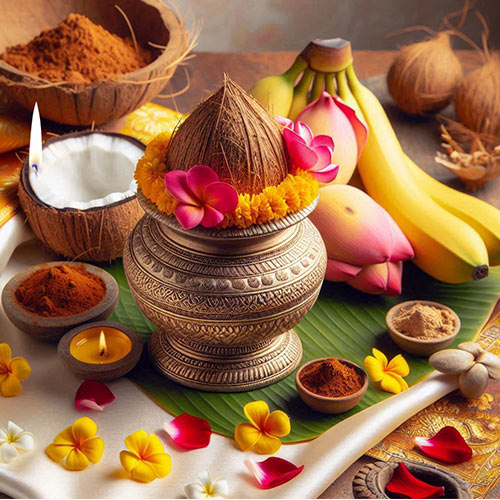
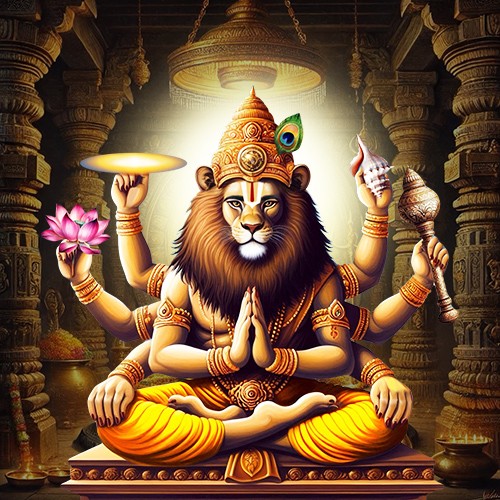
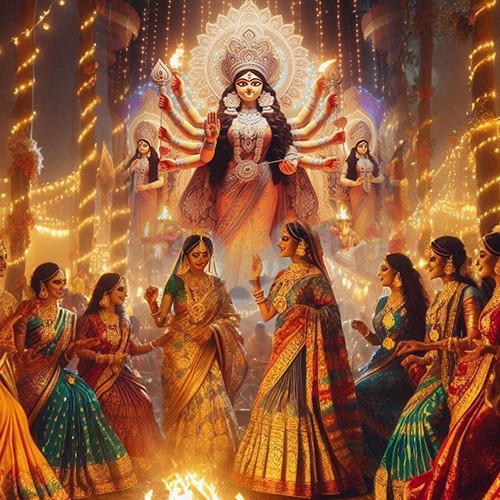
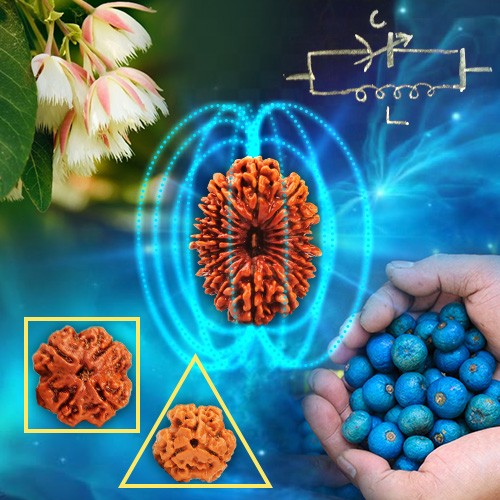

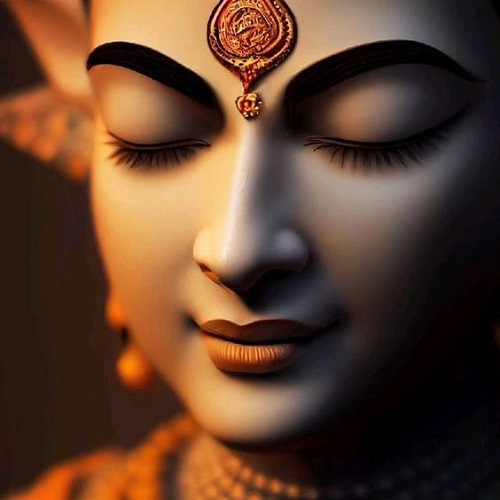
.jpg)
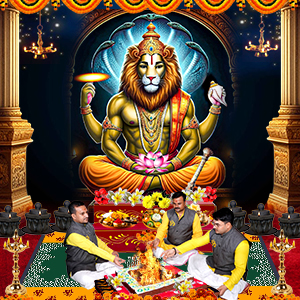
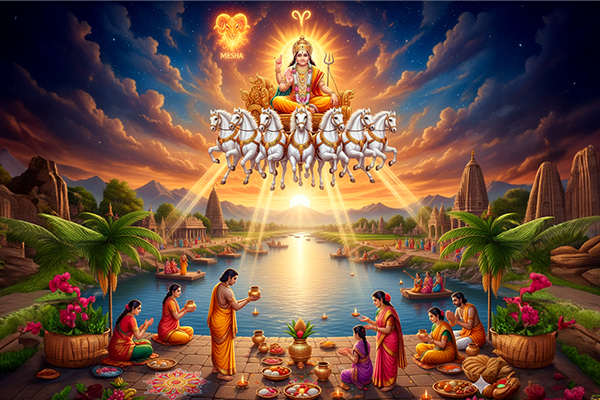
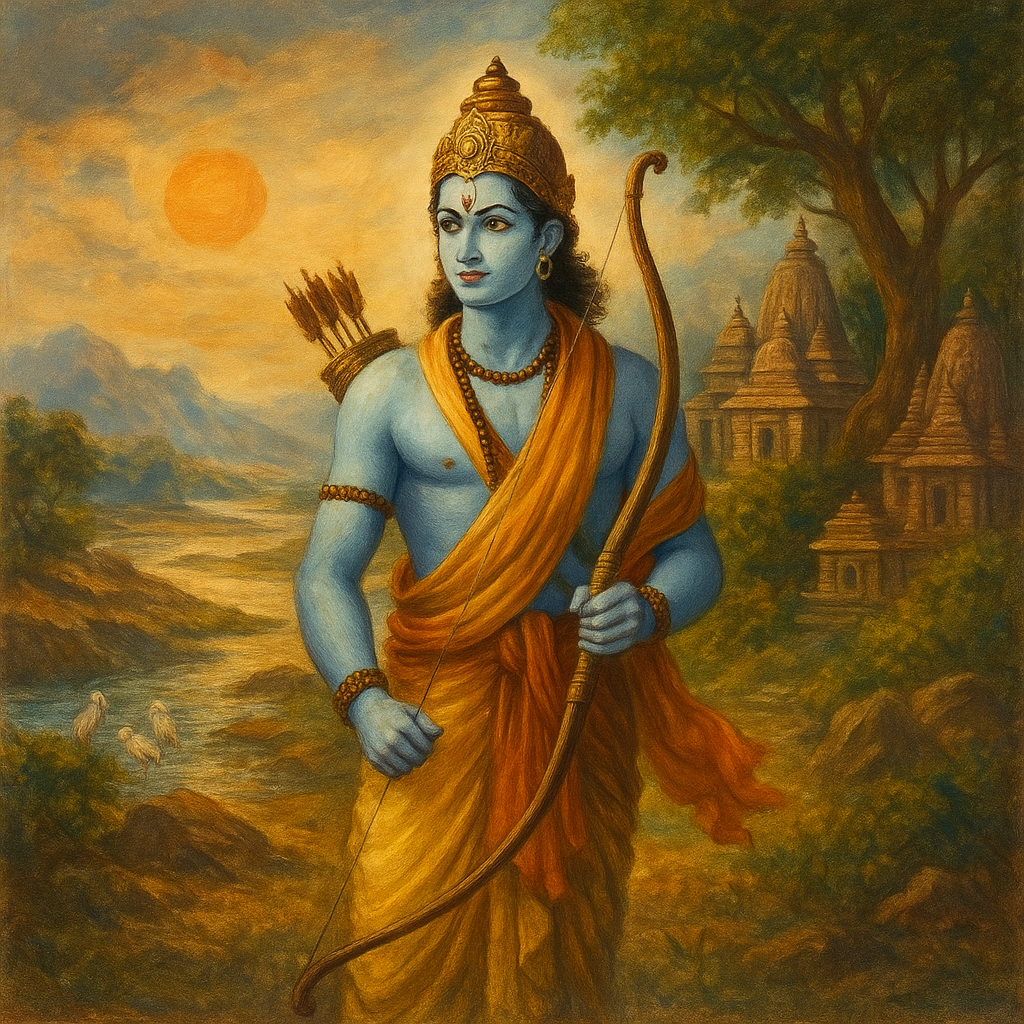
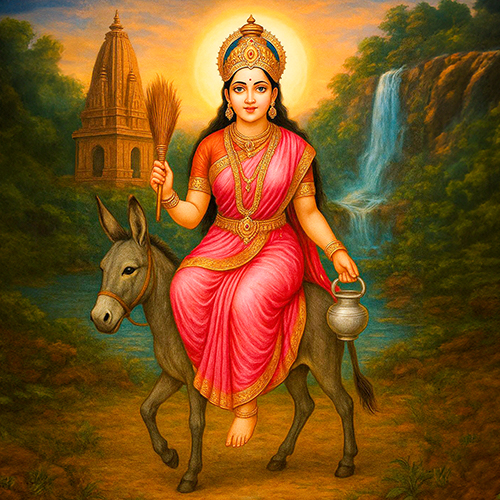
Comments 0
Leave your thought here